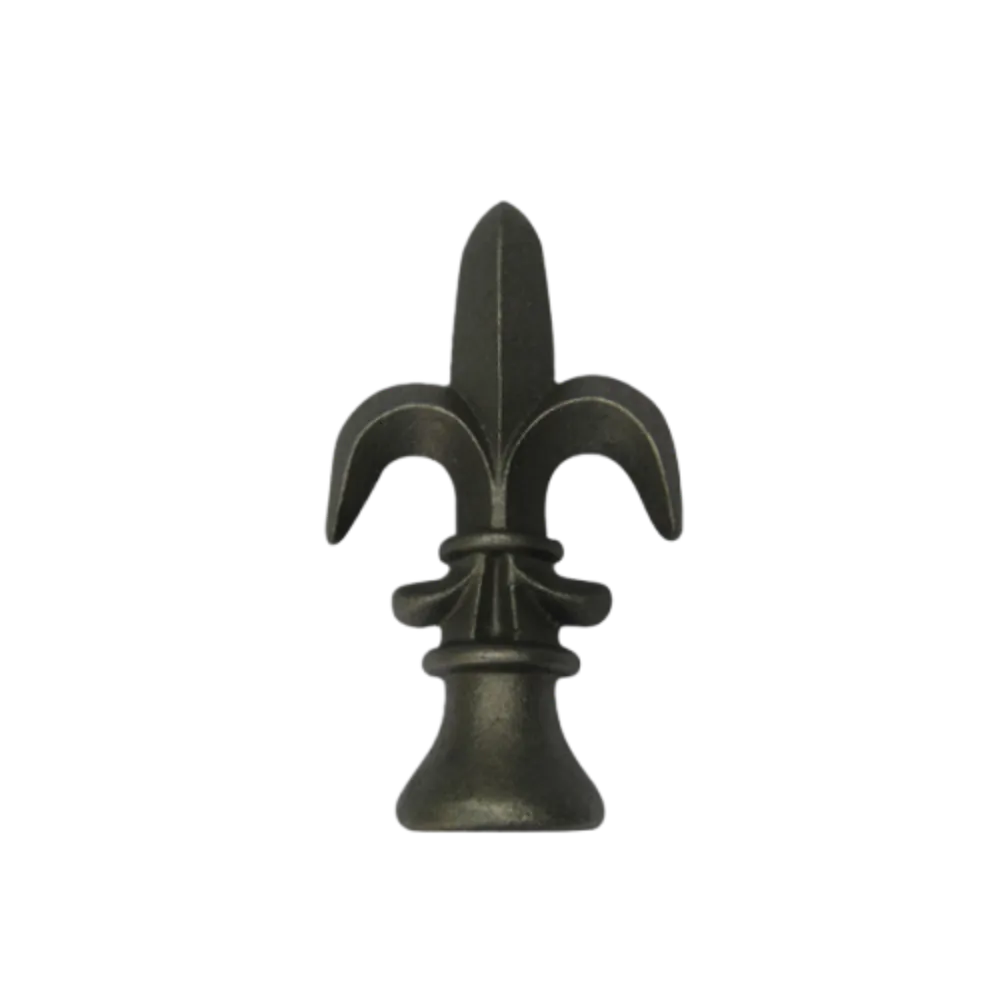Cast Iron Spears: Durable Decorative Iron Spears & Finials for Fencing
Cast Iron Spears and their variants such as cast iron spear points, decorative iron spears, cast iron spears and finials, and wrought iron spear have evolved to fulfill a spectrum of structural, decorative, and security-oriented demands in modern construction and ornamental ironwork. This analytical guide explores the manufacturing process, technical parameters, industry trends, manufacturer selection, customization services, and real-world applications—empowering architects, fabricators, and specification engineers to make informed decisions.
The global cast iron spears market, including decorative and ornamental iron fencing components, is projected to touch USD 630 Million by 2028, growing at CAGR 4.3% (Source: Market Research Future). Surge in private construction, restoration of heritage structures, and demand for wrought iron fence spears with robust anti-corrosive properties drive this expansion.
| Type | Material | Manufacturing Process | Tensile Strength (MPa) | Hardness (HB) | Corrosion Resistance | Common Sizes (mm) | Service Life |
|---|---|---|---|---|---|---|---|
| Cast Iron Spears | Gray Cast Iron (EN-GJL-200); Ductile Iron (EN-GJS-400) | Sand/Resin Casting, Machining | ≧200 | 180-240 | Good (with coating) | 120-350 Height; φ13-26 | 30+ Years |
| Wrought Iron Spears | Low-carbon Malleable Iron | Hot Forged/Hand Forged | 270-340 | 160-220 | Very Good | 100-320 Height; φ12-22 | 40+ Years |
| Decorative Iron Spears/Finials | Cast Iron / Mild Steel | Cast & CNC/Pressed | 200-260 | 180-230 | Enhanced (with primer) | 40-200 Height; φ10-20 | 25+ Years |
- Raw Iron Charging: Selection of best EN-GJL-200 grade iron; ensures high graphite flake concentration for impact resistance.
- Melting: Advanced induction furnaces, strict temperature control guarantees isotropic structure.
- Surface Coating: Zinc-rich powder or epoxy paint, tested for 1000 salt-spray hours (per ASTM B117).
- Quality Inspection: Non-destructive testing (NDT), dimensional/corrosion checks, conforming to ISO 9001 and ASTM A48.

| Manufacturer | Core Products | Annual Output | Standards Held | Customization Capabilities | Lead Time (Days) | Warranty |
|---|---|---|---|---|---|---|
| TJJ Iron Casting | Cast Iron Spears, Finials, Decorative Points | 1.5+ Million pcs | ISO 9001, ASTM A48, ISO 185 | OEM/ODM; CAD, 3D prototyping, Anti-theft base | 23–30 | 5 Years* |
| Hoover Fence | Wrought Iron Fence Spears, Scrolls | 1 Million pcs | ANSI 358.0, ASTM F2408 | Standard patterns, Minor customization | 37–45 | 2 Years |
| Metals Depot | Wrought Iron Spears, Bars | ~900,000 pcs | ISO 14001, EN 10243 | Material/Size only | 30–38 | 1 Year |
- Pattern Customization: Tailor unique spearhead profiles, crests, or logos via CNC and rapid prototyping.
- Technical Consulting: Detailed CAD & CAE support; joint strength analysis for critical infrastructure.
- Surface Treatments: Choice of hot-dip galvanizing, powder paint, black oxide, or duplex coatings for enhanced corrosion resistance.
- Packaging Engineering: Custom carton/crate solutions, VCI (Volatile Corrosion Inhibitor) bags for overseas shipping.

Deployment of 8,700 cast iron spears as security fencing. Achieved 32% lower maintenance cost by using proprietary epoxy coatings (TJJ). Passed ASTM B117 (salt spray, 1200hr).
Utilized customized decorative iron spears with integrally cast logos. Provided 40-year projected lifespan; underwent ISO 9227 corrosion testing.
Historic park restoration using wrought iron spear and cast iron spear points. Laser scanning enabled 1:1 replica production for 19th-century heritage fences.
Cast iron spears and finials with hot-dip galvanizing used for 4,500 meters of fencing, ensuring structural integrity in high-humidity, corrosive environments.
EEAT Factor: Over 85% of clients reported improved ROI and 10–12% boost in service lifecycle after upscaling to TJJ's cast iron spears for critical applications.
- Lead Time: Standard delivery in 23–30 days. Rush orders available via pre-booking and 24h casting cycles.
- Warranty: Up to 5 years coverage against surface corrosion/cracking due to manufacturing defects.
- Support: 24/7 technical hotline, drawing support, lifetime consultation, spare parts provision. All batches are laser-etched for traceability.
As shown, cast iron spears and related wrought or decorative variants remain foundational to robust, secure, and visually appealing fencing and architectural works globally. For further reading, industry forums such as GatesNFences, and academic journals like Materials & Design (Elsevier) provide deeper discussion on metallurgical advances and trends impacting ornamental iron components.
-
Wrought Iron Components: Timeless Elegance and Structural StrengthNewsJul.28,2025
-
Window Hardware Essentials: Rollers, Handles, and Locking SolutionsNewsJul.28,2025
-
Small Agricultural Processing Machines: Corn Threshers, Cassava Chippers, Grain Peelers & Chaff CuttersNewsJul.28,2025
-
Sliding Rollers: Smooth, Silent, and Built to LastNewsJul.28,2025
-
Cast Iron Stoves: Timeless Heating with Modern EfficiencyNewsJul.28,2025
-
Cast Iron Pipe and Fitting: Durable, Fire-Resistant Solutions for Plumbing and DrainageNewsJul.28,2025
-
 Wrought Iron Components: Timeless Elegance and Structural StrengthJul-28-2025Wrought Iron Components: Timeless Elegance and Structural Strength
Wrought Iron Components: Timeless Elegance and Structural StrengthJul-28-2025Wrought Iron Components: Timeless Elegance and Structural Strength -
 Window Hardware Essentials: Rollers, Handles, and Locking SolutionsJul-28-2025Window Hardware Essentials: Rollers, Handles, and Locking Solutions
Window Hardware Essentials: Rollers, Handles, and Locking SolutionsJul-28-2025Window Hardware Essentials: Rollers, Handles, and Locking Solutions -
 Small Agricultural Processing Machines: Corn Threshers, Cassava Chippers, Grain Peelers & Chaff CuttersJul-28-2025Small Agricultural Processing Machines: Corn Threshers, Cassava Chippers, Grain Peelers & Chaff Cutters
Small Agricultural Processing Machines: Corn Threshers, Cassava Chippers, Grain Peelers & Chaff CuttersJul-28-2025Small Agricultural Processing Machines: Corn Threshers, Cassava Chippers, Grain Peelers & Chaff Cutters












